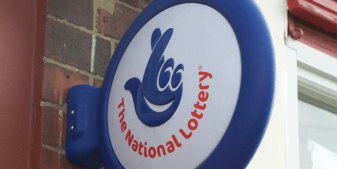Following the loss of its license to run the National Lottery, there are reports that Camelot UK will start legal proceedings to challenge its defeat in the license bidding process.
Camelot has been a primary license holder for the National Lottery since 1994 and was believed to be the outright favorite to win the fourth and final license for the upcoming renewal period. However, earlier in March, the Gambling Commission announced that it had instead opted for Allwyn Entertainment, a company controlled by Czech billionaire Karel Komarek.
Camelot had outscored Allwyn Entertainment on almost every aspect of the application process
Reports suggest that Camelot believes that the Gambling Commission had failed to adhere to the selection protocols that it had implemented itself when choosing between the four candidates for the remaining license.
The Commission named Camelot as a ‘reserve candidate’ that could step in should there be any issues with Allwyn Entertainment taking on the license. However, Camelot, which is owned by Ontario Teachers Pension Plan, has decided to make a formal request to the courts for a judicial review of the decision.
Nigel Railton, the Camelot chief executive, refused to confirm that legal action was planned instead saying:
“I’m incredibly disappointed by the announcement. We’re now carefully reviewing the Gambling Commission’s evaluation before deciding on our next steps.”
Following the announcement of the winning licensee, it emerged that Camelot had outscored Allwyn Entertainment on almost every aspect of the application process.
Despite having an inferior business plan, it’s believed that the Gambling Commission opted for Allwyn as a result of the company’s promise to share more of the profits with charitable causes than any other bidder.
According to Allwyn’s bid, the company expected to raise a minimum of £38 billion over the ten-year license. This was considerably more than the amount suggested by Camelot who, since 1994 has raised £45 billion for good causes. The bidders were asked to give a detailed forecast of what they expected to raise for charities but are under no obligation to actually reach that target and will face no penalties for failing to do so.
In a statement released today, the Gambling Commission said that it would not provide any information on legal challenges that may be underway. The Commission did say that it felt that the bidding process was fair saying:
“We are confident that we have run a fair and robust competition. We have taken every step possible to ensure a level playing field for all interested parties, to enable us to appoint a licensee who will engage and protect players, run the National Lottery with integrity and ensure the National Lottery continues to support good causes and their contribution to society.”
The new license is set to begin in 2024 and will run for a ten-year period.
Image credit: Staffs Live / CC BY-NC 2.0
